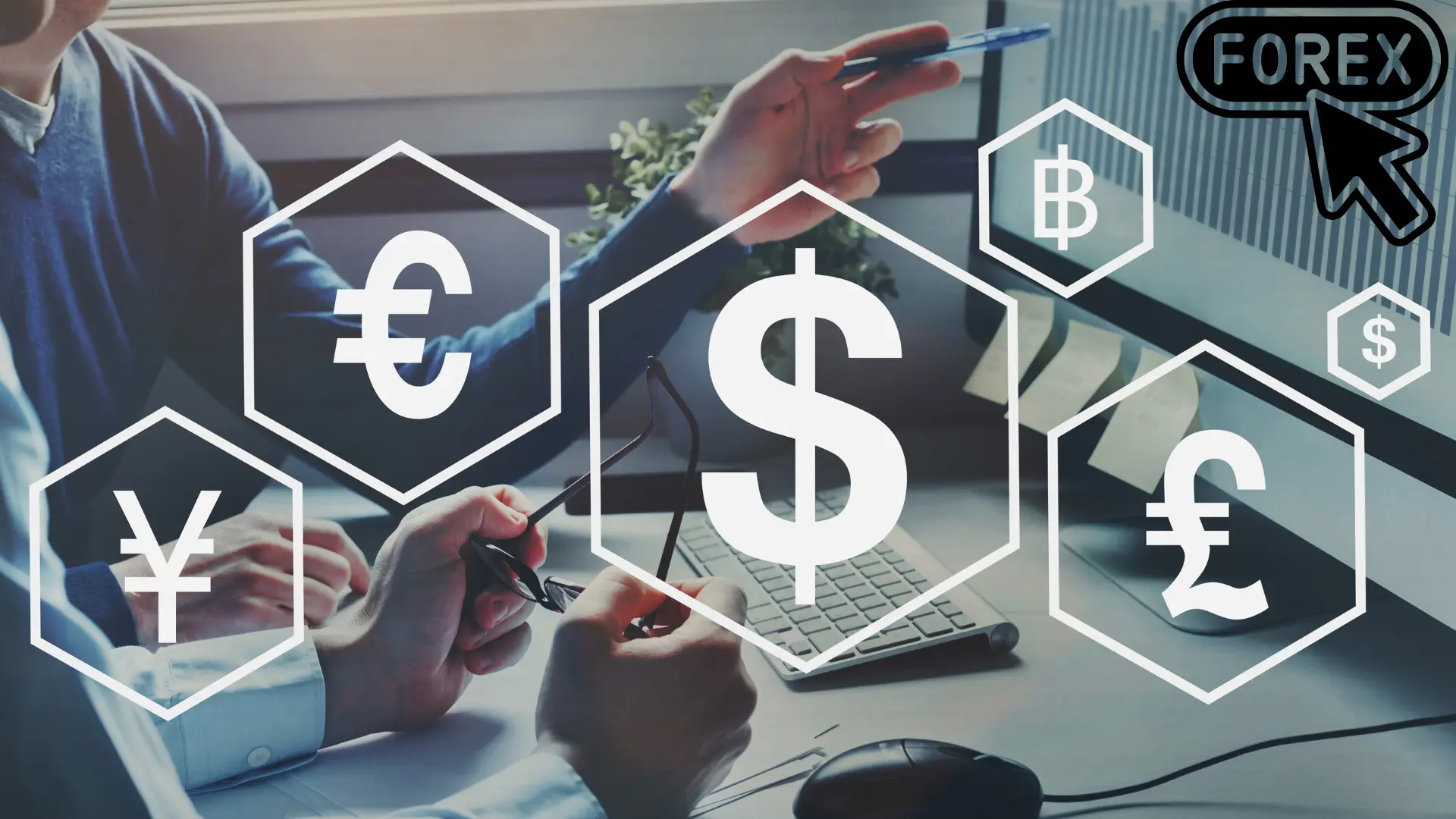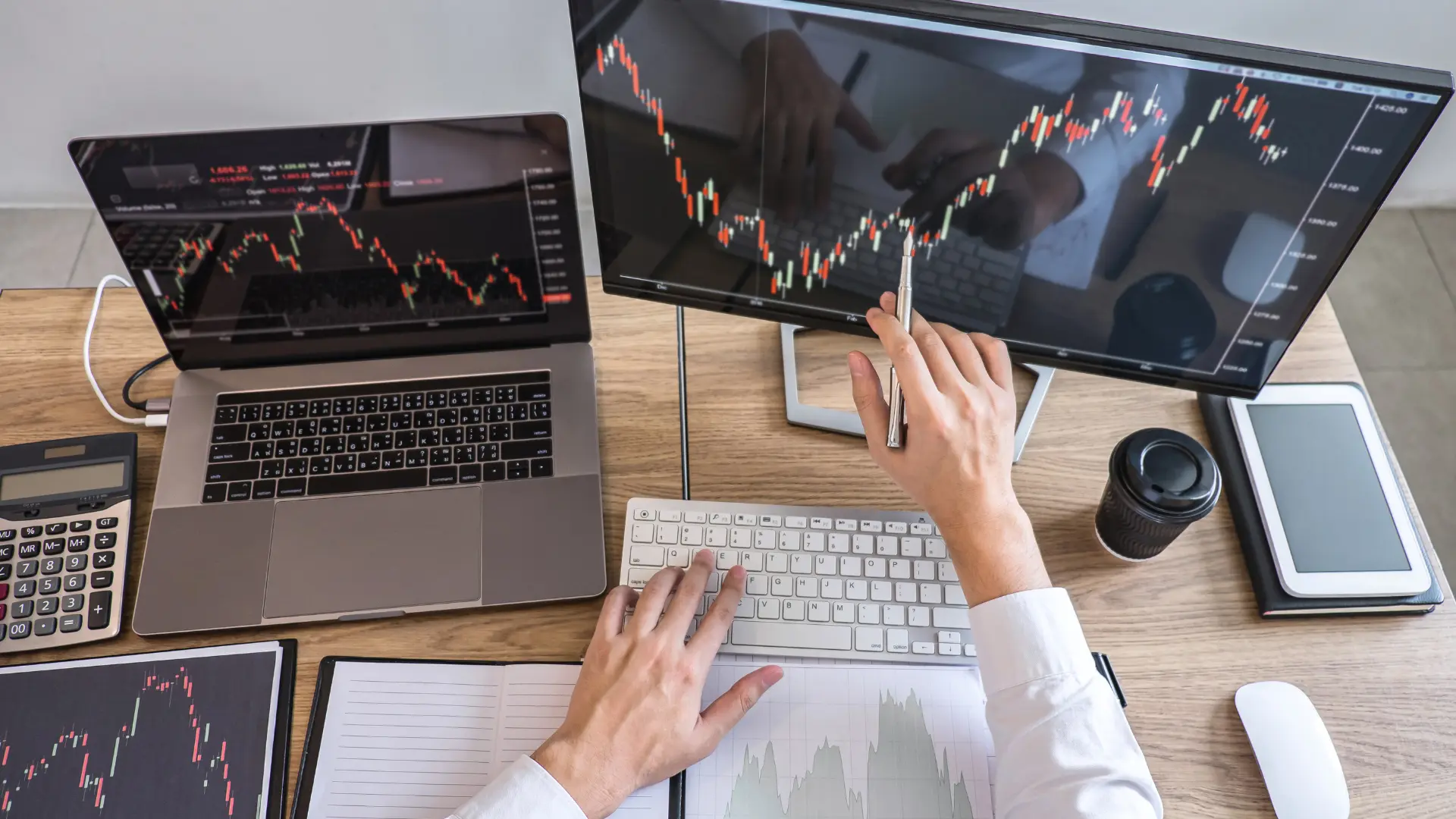The Forex market, also known as the foreign exchange market, is the largest and most liquid financial market in the world. Trillions of dollars are traded daily, making it an essential part of the global economy. In this article, we’ll explore what the Forex market is, how it operates, the key players involved, and why it’s an attractive market for traders and investors.
What is the Forex Market?
The Forex market is a global marketplace for exchanging national currencies. It operates 24 hours a day, five days a week, across major financial centers worldwide, including New York, London, Tokyo, and Sydney. Unlike other financial markets, such as stock or commodity markets, Forex does not have a centralized exchange. Instead, it operates over-the-counter (OTC), meaning all transactions occur electronically via computer networks between traders around the world.
How Does the Forex Market Work?

Currency trading in the Forex market involves buying one currency while simultaneously selling another. These transactions are typically conducted in currency pairs, such as EUR/USD (euro against the U.S. dollar) or GBP/JPY (British pound against the Japanese yen). The first currency in the pair is known as the base currency, and the second is the quote currency. The price of a currency pair indicates how much of the quote currency is needed to buy one unit of the base currency.
For example, if the EUR/USD pair is trading at 1.10, it means that 1 euro can be exchanged for 1.10 U.S. dollars.
Key Players in the Forex Market
The Forex market is highly decentralized, with a wide range of participants, including:
Central Banks:
- Central banks play a critical role in the Forex market by implementing monetary policies and influencing exchange rates. They may intervene in the market to stabilize their currency or achieve specific economic objectives.
- Example: The European Central Bank (ECB) might buy or sell euros to control inflation and stabilize the Eurozone economy.
Commercial Banks and Financial Institutions:
- Large commercial banks are the primary participants in the Forex market. They facilitate currency transactions for clients, engage in speculative trading, and provide liquidity to the market.
- Example: JPMorgan Chase might trade currencies on behalf of multinational corporations or hedge funds.
Corporations:
- Multinational corporations engage in Forex trading to manage currency risk associated with international trade. They use the market to convert foreign earnings or hedge against unfavorable currency movements.
- Example: A U.S.-based company like Apple might exchange foreign revenues into U.S. dollars to avoid currency fluctuations affecting their profit margins.
Retail Traders:
- Individual traders, known as retail traders, participate in the Forex market through online brokerage platforms. They trade currency pairs based on market analysis and speculation.
- Example: A retail trader might buy the GBP/USD pair if they believe the British pound will strengthen against the U.S. dollar.
Hedge Funds and Investment Firms:
- Hedge funds and investment firms engage in Forex trading to diversify their portfolios, hedge against currency risk, or speculate on currency movements. They often make large, leveraged trades.
- Example: A hedge fund might take a significant position in the yen if it expects Japan’s economic policies to lead to currency appreciation.

Why Trade Forex?
The Forex market offers several advantages that make it an attractive market for traders and investors:
High Liquidity:
- The Forex market is the most liquid market globally, with vast amounts of currency traded daily. This high liquidity ensures that trades can be executed quickly and at desired prices, reducing the risk of slippage.
24-Hour Market:
- Unlike stock markets, the Forex market operates 24 hours a day, allowing traders to take advantage of market opportunities at any time. This round-the-clock trading is ideal for those with different time zones or busy schedules.
Leverage:
- Forex brokers often offer leverage, allowing traders to control large positions with a relatively small amount of capital. While leverage can amplify profits, it also increases the risk of significant losses.
Low Transaction Costs:
- Forex trading typically has lower transaction costs compared to other financial markets. The primary cost of trading Forex is the spread, which is the difference between the bid and ask price of a currency pair.
Diverse Trading Opportunities:
- The Forex market offers a wide range of currency pairs to trade, providing ample opportunities for traders to profit from different economic conditions and market trends.

Risks of Forex Trading
While the Forex market offers numerous benefits, it also carries significant risks:
High Volatility:
- Currency prices can be highly volatile, influenced by various factors such as economic data, geopolitical events, and central bank policies. This volatility can lead to substantial gains or losses.
Leverage Risk:
- While leverage can enhance profits, it also increases the potential for large losses. Traders using high leverage may quickly deplete their capital if the market moves against them.
Market Risk:
- The Forex market is influenced by a complex set of factors, making it challenging to predict currency movements accurately. Unexpected events, such as political instability or natural disasters, can cause sudden market shifts.
Counterparty Risk:
- Forex trading involves dealing with brokers or financial institutions. There is a risk that the broker may default or engage in fraudulent practices, leading to financial losses for the trader.


Conclusion
The Forex market is a dynamic and essential part of the global financial system, offering opportunities for traders and investors to profit from currency movements. Its high liquidity, 24-hour trading, and diverse opportunities make it an attractive market for those looking to diversify their investment portfolios or engage in active trading.
However, Forex trading is not without its risks. Understanding the market’s complexities, managing leverage carefully, and staying informed about global economic events are crucial for success in this fast-paced market. Whether you’re a beginner or an experienced trader, a solid grasp of Forex fundamentals is essential for navigating the world of currency trading.